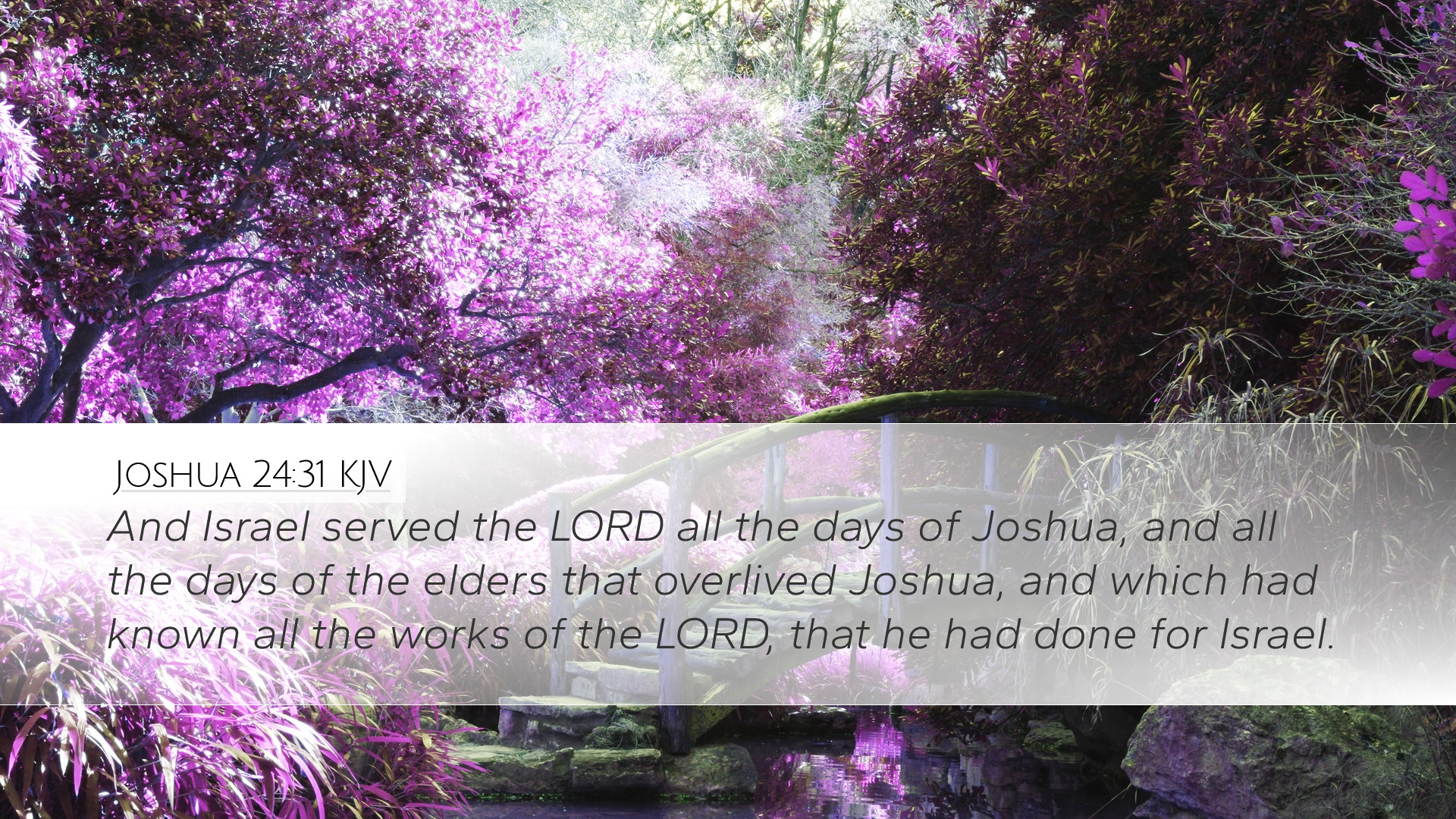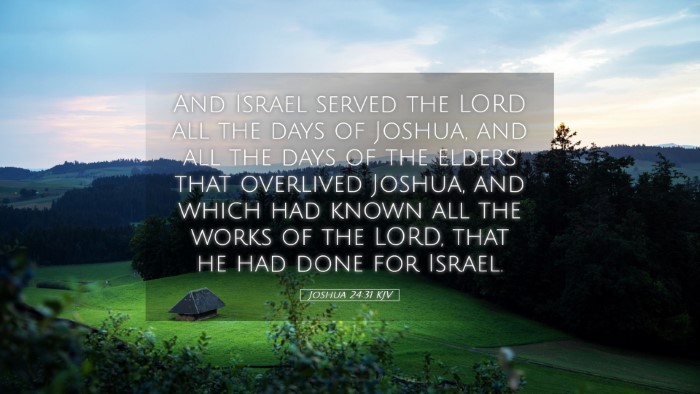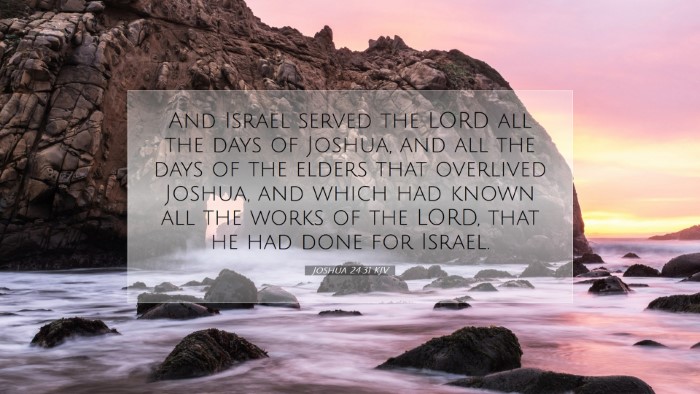Commentary on Joshua 24:31
This verse, Joshua 24:31, serves as a pivotal point in the narrative of the Israelites' journey into the Promised Land. It reflects their commitment to God and the influence of Joshua's leadership. Through a synthesis of insights from esteemed public domain commentaries, we will explore the theological, historical, and practical applications of this passage.
Text of Joshua 24:31
“And Israel served the LORD all the days of Joshua, and all the days of the elders that overlived Joshua, and which had known all the works of the LORD, that he had done for Israel.”
Theological Insights
This verse encapsulates a significant commitment of the Israelites to God's service, emphasizing both the continuation of faith and the importance of leadership.
- Commitment to God: The phrase "Israel served the LORD" signifies a collective resolution among the people of Israel to adhere to the covenant established with God. This underscores the idea that faith is both personal and communal.
- The Role of Leadership: Joshua’s leadership is crucial in holding the nation together. As noted by Matthew Henry, the stability of faith among the people during Joshua's lifetime and the subsequent years of the elders indicates that good leadership inspires fidelity to God.
- Covenant Memory: The reference to “all the works of the LORD” signifies the importance of remembering God’s actions in their past, fostering a deeper trust and commitment to Him.
Historical Context
Understanding the historical landscape during this time helps shed light on the significance of this verse:
- Transition from Wilderness to Promised Land: The Israelites had journeyed for forty years through the desert, and now they settled in Canaan. This transition marked a new chapter of faithfulness and obedience, as they would now live in a land promised to them.
- Judges and Elder Leadership: The “elders that overlived Joshua” indicate the system of governance established post-Joshua which included leaders who had witnessed God’s miracles and teachings first-hand.
Commentary Insights
Various commentators provide rich insights into the implications of Israel's servitude to God during the period following Joshua’s leadership.
- Matthew Henry: He emphasizes that this verse not only marks the faithfulness of Israel but also serves as a stark reminder of the perils of losing such devotion. The later history recorded in Judges starkly contrasts with this era of fidelity.
- Albert Barnes: Barnes highlights that the phrase “served the LORD” implies active obedience and devotion, which were evidently prompted by Joshua's guidance and the collective remembrance of God’s works in their midst.
- Adam Clarke: Clarke notes that the phrase “which had known all the works of the LORD” points to the essential role of teaching and imparting knowledge about God’s faithfulness to succeeding generations. This shows the importance of mentoring in maintaining spiritual continuity.
Practical Applications
The lasting principles gleaned from this verse can be applied in various ministerial and scholarly contexts.
- Leadership Development: Church leaders today can learn from Joshua’s example by fostering environments of faithfulness and commitment among their congregations, commemorating God’s past faithfulness to strengthen current faith.
- Generational Faith: The importance of passing on the knowledge of God’s works to future generations cannot be overstated. Churches must prioritize programs that instill the historicity of God’s interaction with humanity.
- Examples of Obedience: Just as Joshua led with integrity and faithful service, contemporary leaders must live as examples of obedience to inspire their communities to turn towards God wholeheartedly.
Conclusion
Joshua 24:31 presents a crucial moment of reflection for the people of Israel, encapsulating themes of faithfulness, leadership, and the necessity of remembering God’s mighty works. The insights from the commentaries of Matthew Henry, Albert Barnes, and Adam Clarke offer a rich tapestry of understanding that can guide pastors, students, theologians, and scholars in their study and application of the Scriptures. Ultimately, this verse challenges us to meditate on our commitment to God and the ways we can cultivate a similar faithfulness within our own contexts.


